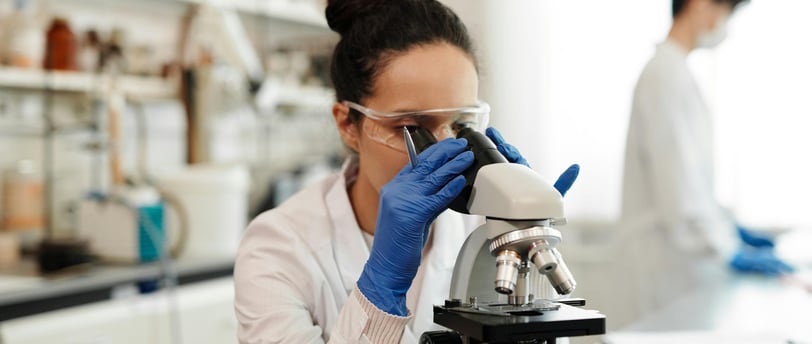Biotechnology: Shaping the Future Through Innovation and Discovery
In the modern era of science and innovation, biotechnology stands out as a transformative discipline with the potential to reshape entire industries, revolutionize healthcare, and address global challenges such as food insecurity and climate change.
sean mauleti
6/2/20253 min read


In the modern era of science and innovation, biotechnology stands out as a transformative discipline with the potential to reshape entire industries, revolutionize healthcare, and address global challenges such as food insecurity and climate change. It is not merely a scientific endeavor but a powerful intersection of biology, technology, and engineering that offers limitless possibilities for the future. Biotechnology presents a unique and exciting frontier for countries aiming to lead in innovation and for young minds seeking impactful careers. This article explores what biotechnology truly means, how it has evolved in recent years, its profound role in combating genetic diseases, why nations should prioritize research and investment in this domain, and what makes it a compelling field of study for young people.
What is Biotechnology?
Biotechnology is the use of biological systems, organisms, or derivatives to develop products and technologies that improve the quality of human life and the health of the planet. It combines biology with technology to create applications in medicine, agriculture, environmental science, and industrial processes.
The field is broadly divided into several categories:
Red biotechnology: Focuses on medical applications, such as developing new drugs, vaccines, and therapies.
Green biotechnology: Involves agricultural processes, including genetically modified crops and sustainable farming techniques.
White biotechnology: Applies to industrial processes, such as biofuels and biodegradable plastics.
Blue biotechnology: Related to marine and aquatic applications, including algae-based bio-products.
The core of biotechnology lies in manipulating living organisms at the molecular and cellular level to create solutions for real-world problems, from treating illnesses to producing cleaner energy.
The Progress of Biotechnology Today
Biotechnology has made remarkable strides in the past few decades, evolving from basic genetic engineering into a sophisticated, multi-disciplinary field driven by cutting-edge technologies such as CRISPR-Cas9, synthetic biology, genomics, bioinformatics, and AI-driven drug discovery.
1. Gene Editing and CRISPR
The development of CRISPR-Cas9 has been a watershed moment for biotechnology. This gene-editing tool allows scientists to make precise changes to DNA, offering unprecedented control over genetic material. CRISPR has already been used to correct genetic mutations in lab settings, offering hope for treating inherited diseases like sickle cell anemia, muscular dystrophy, and cystic fibrosis.
2. Synthetic Biology
Synthetic biology involves designing and constructing new biological parts and systems. This approach allows scientists to "program" cells in the same way engineers program computers. Applications include custom microorganisms that produce pharmaceuticals, biofuels, or even biodegradable plastics.
3. Personalized Medicine
Biotechnology enables the creation of personalized medicine, which tailors treatment based on a person’s genetic profile. Advances in genomics allow for early detection of diseases, targeted drug delivery, and more effective therapeutic interventions with fewer side effects.
4. Agricultural Biotechnology
Biotech has revolutionized agriculture through genetically modified organisms (GMOs), enabling crops to resist pests, tolerate drought, and yield more. This innovation is crucial for food security in the face of a growing global population and climate change.
5. Environmental Applications
Bioremediation, the use of organisms to clean up environmental pollutants, is another frontier. Engineered bacteria can digest oil spills, degrade plastics, and absorb heavy metals from water, offering eco-friendly solutions to pollution.
Why Biotechnology is a Great Career Path for Young People
For students and young professionals, biotechnology represents one of the most promising and exciting fields of the 21st century. Here's why it’s a smart and inspiring choice:
1. Solving Big Problems
Young people today care deeply about climate change, global health, and sustainability. Biotechnology offers direct ways to make an impact in these areas, from developing green energy solutions to designing next-generation therapies.
2. High Demand and Competitive Salaries
With growing industries like pharmaceuticals, agriculture, and environmental sciences seeking biotech talent, job opportunities are vast. Roles such as biomedical engineer, genetic counselor, research scientist, and biotech entrepreneur are in high demand and often come with attractive compensation.
3. Interdisciplinary and Dynamic Field
Biotechnology is not limited to biology. It involves chemistry, computer science, engineering, and data analytics, making it ideal for students who enjoy working across disciplines. New technologies and breakthroughs ensure that the field remains intellectually stimulating and ever-evolving.
4. Opportunities for Entrepreneurship
Young people interested in innovation can start their own biotech ventures. With incubators and startup funding more accessible than ever, students and researchers can translate lab discoveries into real-world products that improve lives.
5. Global Relevance and Mobility
Biotech is a truly global field, and skills are transferable across countries and industries. Whether working in a cutting-edge lab in Boston, a biotech farm in the Netherlands, or a gene therapy startup in Singapore, the opportunities are vast and international.